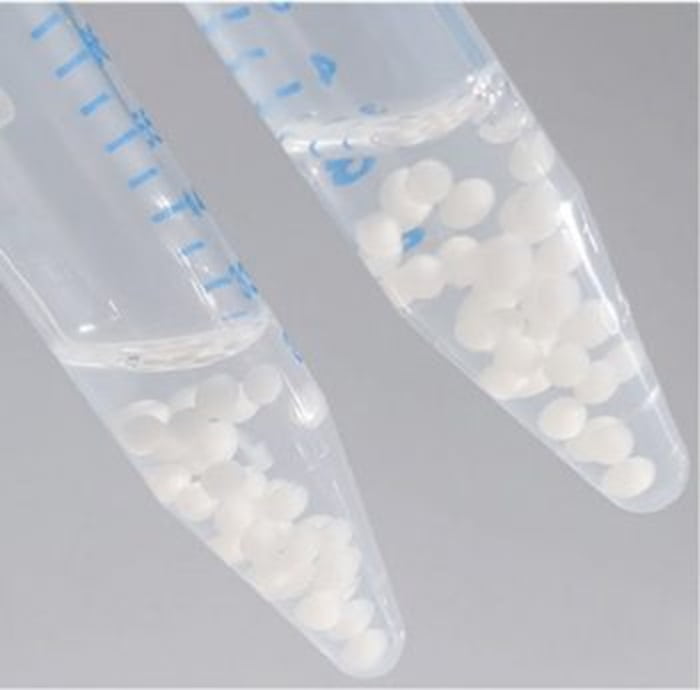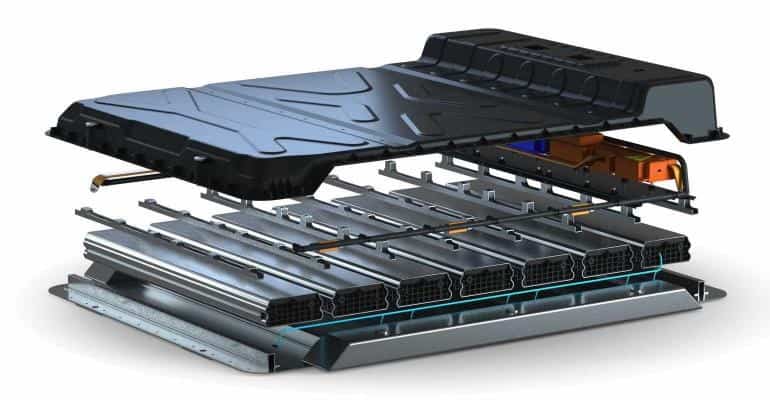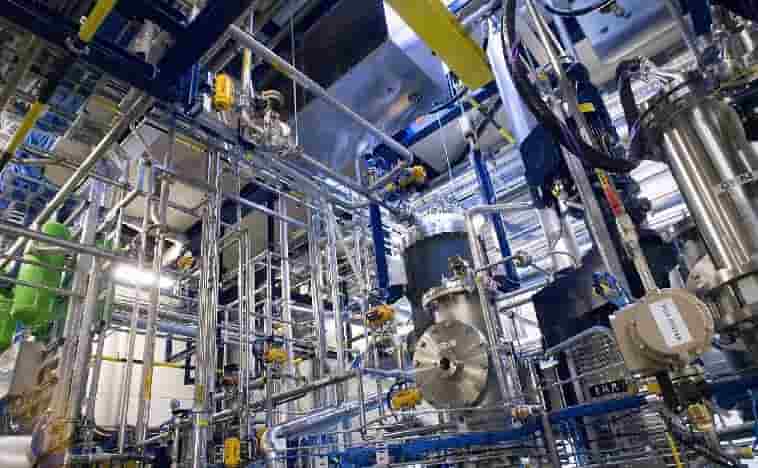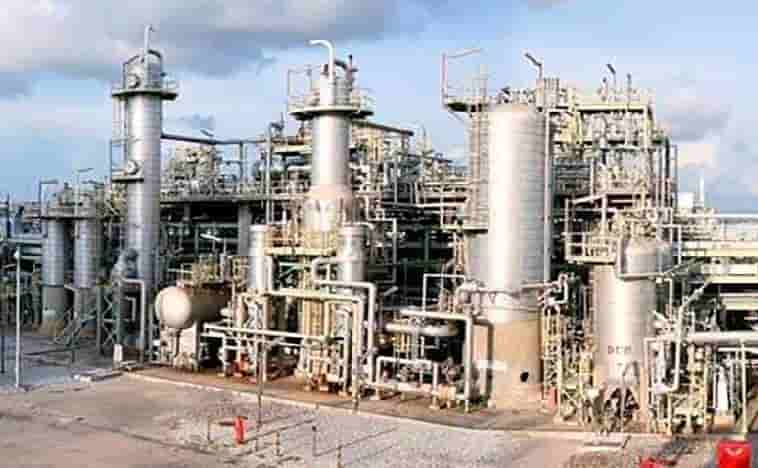Mechanically recycled plastic
Borealis anticipates expanded mechanically recycled plastic compounding capacity in closed Rialti acquisition
Borealis has successfully closed a deal to acquire recycled polypropylene compound producer Rialti in a move set to boost its portfolio of PP compounds based on mechanical recyclates by 50,000 tons annually.
Rialti produces polypropylene compounds with a focus on mechanically recycled PP feedstock from post-industrial and post-consumer waste. With its annual capacity of 50,000 tons, it makes injection moulding and extrusion PP compounds for the automotive, appliances, and construction industries, among others. Mechanically recycled plastic
After signing the agreement to acquire Rialti back in June, Borealis anticipates that the subsequent improvement in capacity will help to expand its PP compounding business and increase its volume of compounds based on mechanical recyclates. In turn, it expects to provide a wider range of sustainability-minded, high-performance solutions, meet customer demand, and help close the loop on a circular economy.
“Mechanical recycling is a key component of our integrated circular cascade model, which is a cornerstone of our future-positive transformation and path to net zero,” says Lucrèce Foufopoulos, Borealis executive vice president Polyolefins, Circularity and Innovation & Technology. “The acquisition of Rialti provides a vital expansion of our recyclate-based PP compound capacity, and marks another critical step on our path to reinventing essentials for sustainable living.” Mechanically recycled plastic
Massimo Dal Toso, CEO of Rialti, adds: “Borealis is at the forefront of our industry’s mission to advance plastics circularity. With the closing of this transaction, I am pleased to see Rialti’s capacity and expertise contributing to this endeavour.
More…

CompPair healable composites, recycled carbon fibers featured in ID Genève luxury watch
HealTech prepregs enable 400x faster regenerative properties for the new Circular C product, along with incorporation of industrial waste fibers for a sustainable touch.
The newly launched Circular C watch by ID Genève (Geneva, Switzerland) is claimed to be the first regenerative watch that has been designed with CompPair Technologies’ (Renens) healable composite technology, HealTech, produced with prepregs made from recycled carbon fibers sourced from industrial waste. Mechanically recycled plastic
The dial, side decorations and bezel of the watch are all comprised of HealTech prepregs, which are capable of repairing scratches and internal cracks up to 400x faster than industrial standards. Initially intended for sports, leisure and aerospace components, CompPair’s smart material has also proved its appeal in the luxury sector.
“CompPair’s vision is to extend the lifetime of composites to reduce maintenance operations and waste, as well as improve circularity, in line with ID Genève’s vision,” Amaël Cohades, CEO and cofounder of CompPair, says. “Through this work, we are demonstrating the use of our healable resins with recycled carbon fibers, that can be applied to various other applications.” Mechanically recycled plastic
CompPair aims to accelerate the transition to a circular economy with a product enabling ultrafast repair and cost reductions. The company is developing innovative resins which produce composite structures that can heal damage on-site in 1 minute. Together with ID Genève, CompPair has taken its technology one step further by combining it with recycled fibers, combining innovation with sustainability.
More…

Multiple mixed plastic polymers depolymerized by single catalyst in new scientific development
Scientists at the Department of Energy’s Oak Ridge National Laboratory (ORNL) have developed a catalytic process that can apparently deconstruct multiple polymers in mixed plastic streams back down to their building blocks – a development set to cut down on energy use, fossil fuel consumption, and carbon emissions, among other benefits.
According to ORNL, almost 90% of mixed consumer plastics are buried in landfills or incinerated at commercial facilities, regardless of whether they enter waste or recycling streams. This is attributed to the cheaper alternative of making new plastics rather than collecting, sorting, and recycling existing ones. Mechanically recycled plastic
In response, ORNL has combined chemical design, neutron scattering, and computing to develop a new recycling process.
It utilizes a catalyst to deconstruct multiple polymers in mixed plastics back into monomers. This process is said to take place over approximately two hours and is thought to be the first single catalytic treatment capable of deconstructing PET, polyurethanes, polyamides, and polycarbonates – all of which make up around 30% of global plastic production, the researchers claim.
An analysis published in the scientific journal Materials Horizons suggests that the new catalyst would call for up to 94% less energy input, generate up to 95% fewer greenhouse gases, and reduce fossil fuel consumption by up to 96%. It is set to replace harsh chemicals in polymer deconstruction and provide good selectivity, thermal stability, nonvolatility, and low flammability. Mechanically recycled plastic
ORNL synthetic polymer chemist and author Tomonori Saito explained: “Our approach involves a tailored synthetic organocatalyst — a compound comprised of small organic molecules that facilitate organic chemical transformations. The organocatalyst can convert batches of mixed plastic waste into valuable monomers for reuse in producing commercial-grade plastics and other valuable materials.
“This exceptionally efficient chemical process can help close the loop for recycling mixed plastics by replacing first-use monomers with recycled monomers.
“Today, nearly all plastics are made from fossil fuels using first-use monomers made by energy-intensive processes. Establishing this kind of closed-loop recycling, if used globally, could reduce annual energy consumption by about 3.5 billion barrels of oil.”
ORNL’s Spallation Neutron Source has also used small-angle neutron scattering to confirm that waste plastics had been deconstructed into monomers. In this process, neutrons are scattered at small angles to gauge structures at different levels of detail, e.g., nanometres or fractions of a micrometre. Mechanically recycled plastic
Plastics are deconstructed at different temperatures by the organocatalyst. This enables individual monomers to be sequentially and separately recovered in a reusable form, as PET deconstructs at 180°C, polyamides at 210°C, polyurethanes at 160°C, and polycarbonates at 130°C.
More…
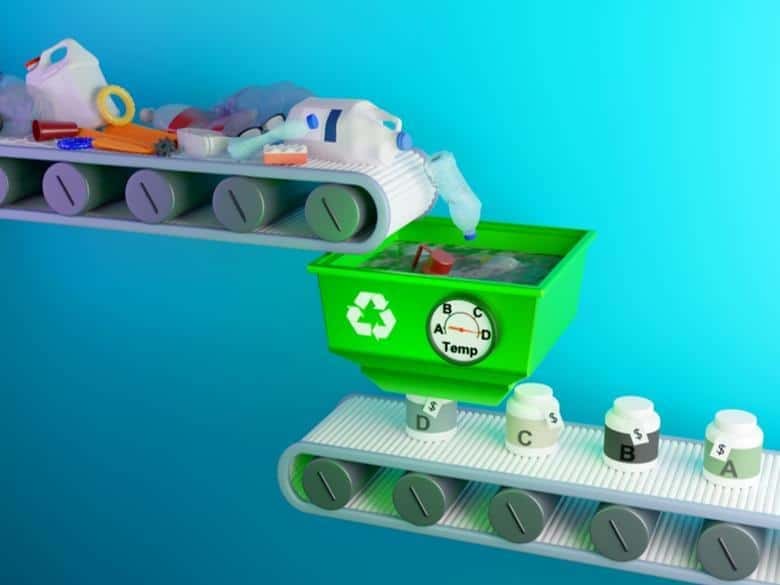
Plastic-eating bacteria turn waste into useful starting materials for other products
